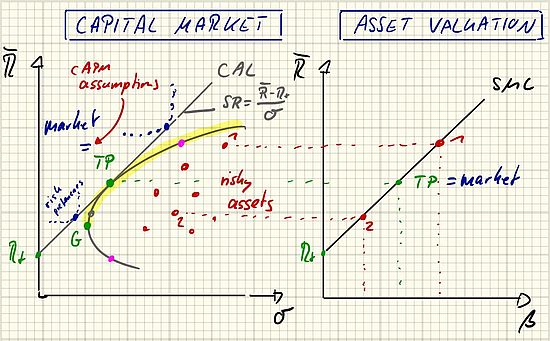Why do markets move as strongly as they do?


We warmly welcome Prof. Tim A. Kroencke as a lecturer in the MBA in Finance with his module Capital Markets and Asset Valuation. Thank you for being on board and enriching our team of lecturers!
Modern capital markets allow us to observe daily, hourly, or even minute-by-minute the prices of stocks, bonds, currencies and many more financial assets. You can use this information to assess whether a specific investment is attractive relative to other available financial assets. Market-based valuation allows you to detect attractive investment opportunities in public and even private markets. If you believe that such good “deals” are rare in financial markets, simple investment strategies allow you to find efficient portfolios for long-term investing.
There is more to discover in this course. Capital markets react quickly to macroeconomic as well as firm-specific news. A surprise in economic policy, monetary policy, economic growth, inflation, earnings or an increase of uncertainty, the outbreak of a pandemic and sometimes just a tweet from the CEO can lead to surprisingly large price reactions in capital markets. We review the theoretical concepts that help us to understand why markets move as much as they do. The empirical evidence documented in leading academic research articles is compared with the predictions by the theories. Some asset price movements line up with the predictions and can be well understood, while others remain a puzzle. The concepts acquired in this course will help you better interpret financial market movements and evaluate the news flow for decision-making.
My research focuses on financial markets and empirical asset pricing. My recent projects are on measuring the economic determinants of return premia, the impact of monetary policy news on stock markets, the behaviour of financial markets during recessions, and explaining the risk-taking of pension funds. My work has been published in academic journals, such as the Journal of Finance, the Journal of Monetary Economics, and the Review of Finance.
I worked on several joint projects with asset management companies and government agencies, for example, on the functioning of the housing market in the European Union, barriers of venture capital financing, and evaluating the performance of retirement savings products. I have extensive teaching experience at the University of Basel (since 2014) and the University of Neuchatel (since 2018) in a broad range of finance courses.
I received a PhD in Finance from the University of Mannheim (2013). I was an Assistant Professor at the University of Basel (2014-2018) before I was promoted to full professor at the University of Neuchatel. Before my academic career, I worked in retail and mortgage banking and for an economic research institute.
I am delighted to be part of the MBA in Finance faculty team! Tim. A. Kröncke
Quick Links
Social Media


